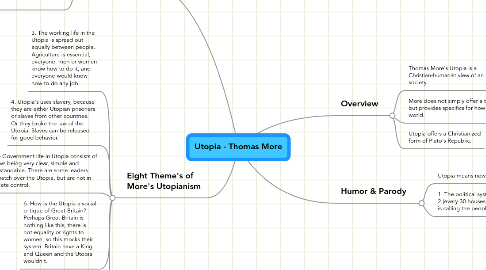Utopia - Thomas More
af Sam Brown


1. Christian Synthesis
1.1. The Christian aspect of the synthesis is Christ's gospel of caring for the poor, the oppressed and the downtrodden.
1.2. The Platonic, Republican tradition is the Greek aspect of the synthesis.
1.2.1. New node
